In Conversation
WU’s self-image as an employer focuses on its faculty and staff. The job satisfaction and health of WU’s employees are evaluated on a regular basis to identify potential for improvement and find the best possible solutions.
Employee Survey
In the fall of 2017, WU employees were asked how they see WU as an employer. 65% of the faculty and staff took part. The results were available in early 2018 and were consistently positive.
A comparison with the last survey showed that the excellent results already reported in 2014 have continued to improve. The greatest increases were in the areas of leadership ability, organizational climate, and employee satisfaction. Extent of employment, time management options, and the campus as a workplace were also rated very highly.
Hardly any stress factors were reported that applied to WU as a whole. For this reason, support was made available to individual organizational units to help them analyze their results and develop effective stress-reduction measures.

Fit2work Survey
WU implemented an occupational health project for employees in 2017. One goal of this project was to find an initial starting point for increasing well-being at our university, by means of a survey on fitness to work. The survey focused on the following aspects:
- Work management and employee health
- Health complaints
- Employees’ self-assessment of their competences and skills and continuing education activities
- Values (motivation, finding meaning in work)
- Employees’ assessment of the quality of cooperation at the workplace
- Employees’ assessment of management behavior
- Stresses and strains experienced by the employee
- Employees’ degree of freedom and independence and the demands of their work
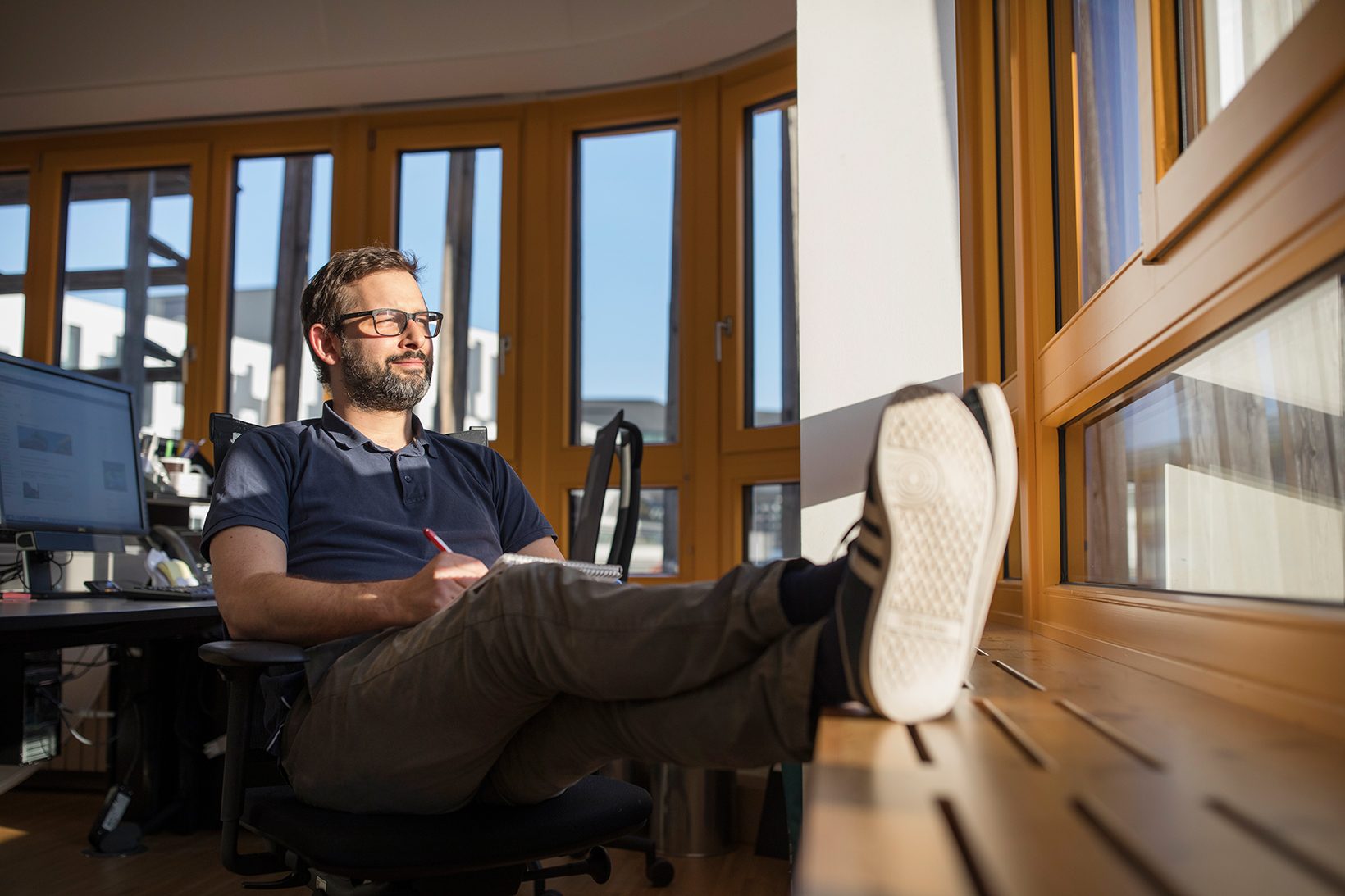
61% of WU’s employees took part in the survey, and gave WU excellent marks. Health stressors are perceived to be low and the aspects skills, values, cooperation, leadership, degree of freedom, and independence were assessed positively. In the open questions, respondents had many positive things to say about WU as an employer. Based on these results, the data for 49 organizational units were analyzed in detail. Together with the heads of these units, we discussed how the working atmosphere at WU could be improved even further.
Wellbeing@WU
A project group on occupational health management at WU was established in 2017. The project group then set up six working groups focusing on different aspects of employee health. Members were selected to ensure that the groups were as heterogeneous as possible in terms of gender, age, group membership, and care responsibilities. After an initial concept development and data collection phase, the first recommendations for occupational health measures were presented in 2018:
- A structured process will be developed to support the reintegration of employees after extended periods of sick leave. Reintegration coordinators will be available as contact persons.
- We are working together with the hospitality establishments on campus to expand the range of healthy food available and raise awareness of the benefits of a well-balanced diet.
- A definition of health-promoting leadership behavior is being developed, and recommendations for action based on this definition are being drafted. Seminars and workshops are available to management staff on this topic.
- The newly founded WU Mindfulness in Practice Lab is intended to stimulate a regular discourse on the “culture of mindfulness.” Workshops are being planned.
- Information on life phase management is to be made available to employees. As a first step, WU is increasing its communication on topics like working hours, partial retirement, and maternity/paternity leave.
- An intranet page on the Wohlbefinden@WU project has been created to inform all WU faculty and staff about existing and planned occupational health measures.
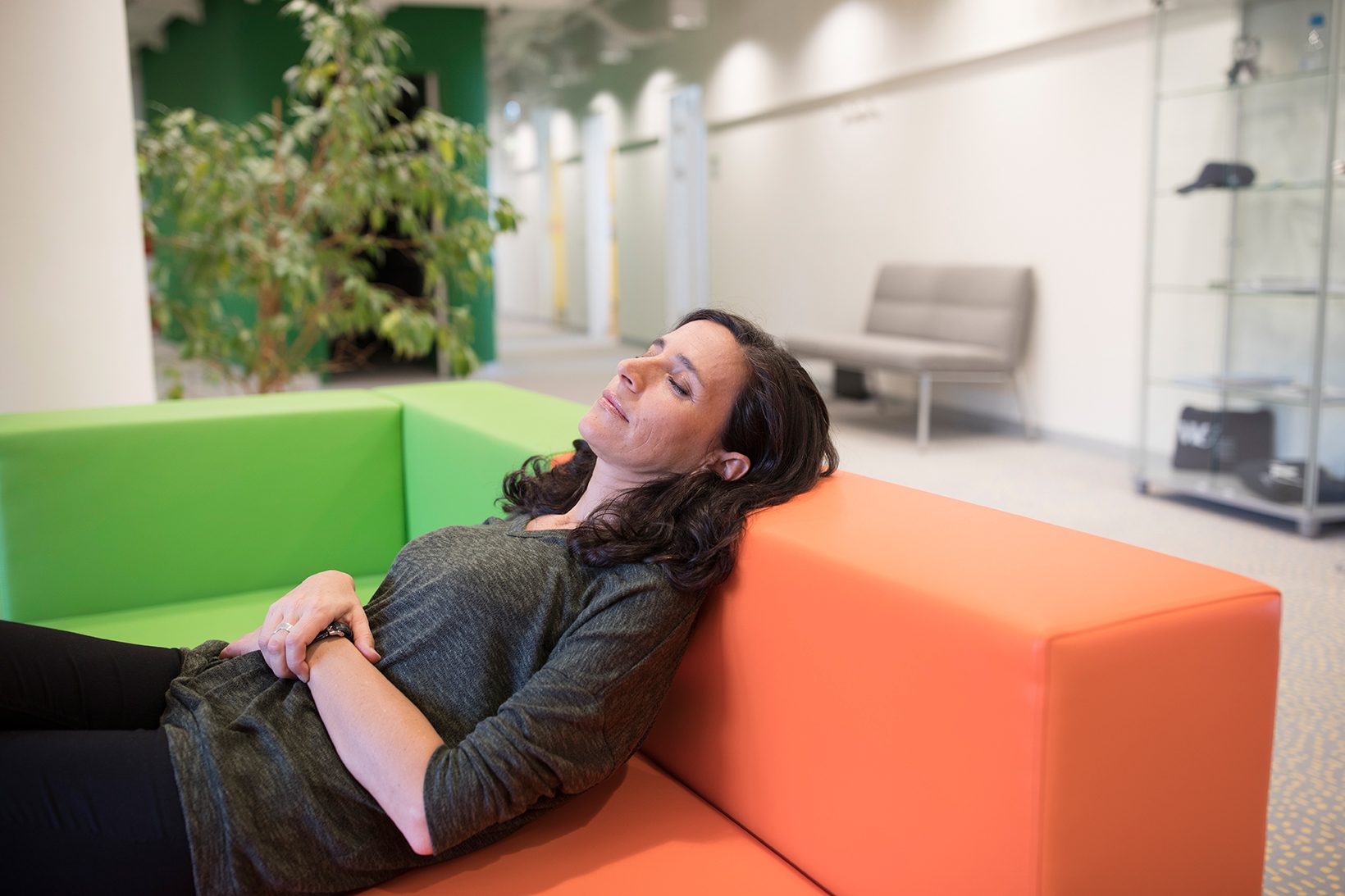
On November 27, Rasmus Hougaard, founder of the Potential Project, spoke at an event called “Leaders of the 21st Century” on research that suggests that managers have more impact on the health of their employees than doctors or partners. Together with the audience, he identified three key characteristics of good leaders: mindfulness, selflessness, and compassion. The subsequent panel discussion addressed the question of how and to what extent these ideals can be realized in management work.
Working Together
It’s important to WU that all of its faculty and staff receive the support they need to do their jobs. The following initiatives help us reach this goal:
Creating a Family-friendly Working Environment
WU has issued guidelines to help make management staff more aware of the needs of employees with caretaking responsibilities. Unit heads can read up on:
- Family-friendly scheduling
- Key aspects of family-friendly communication
- Keeping employees on parental leave informed of what’s going on in the unit
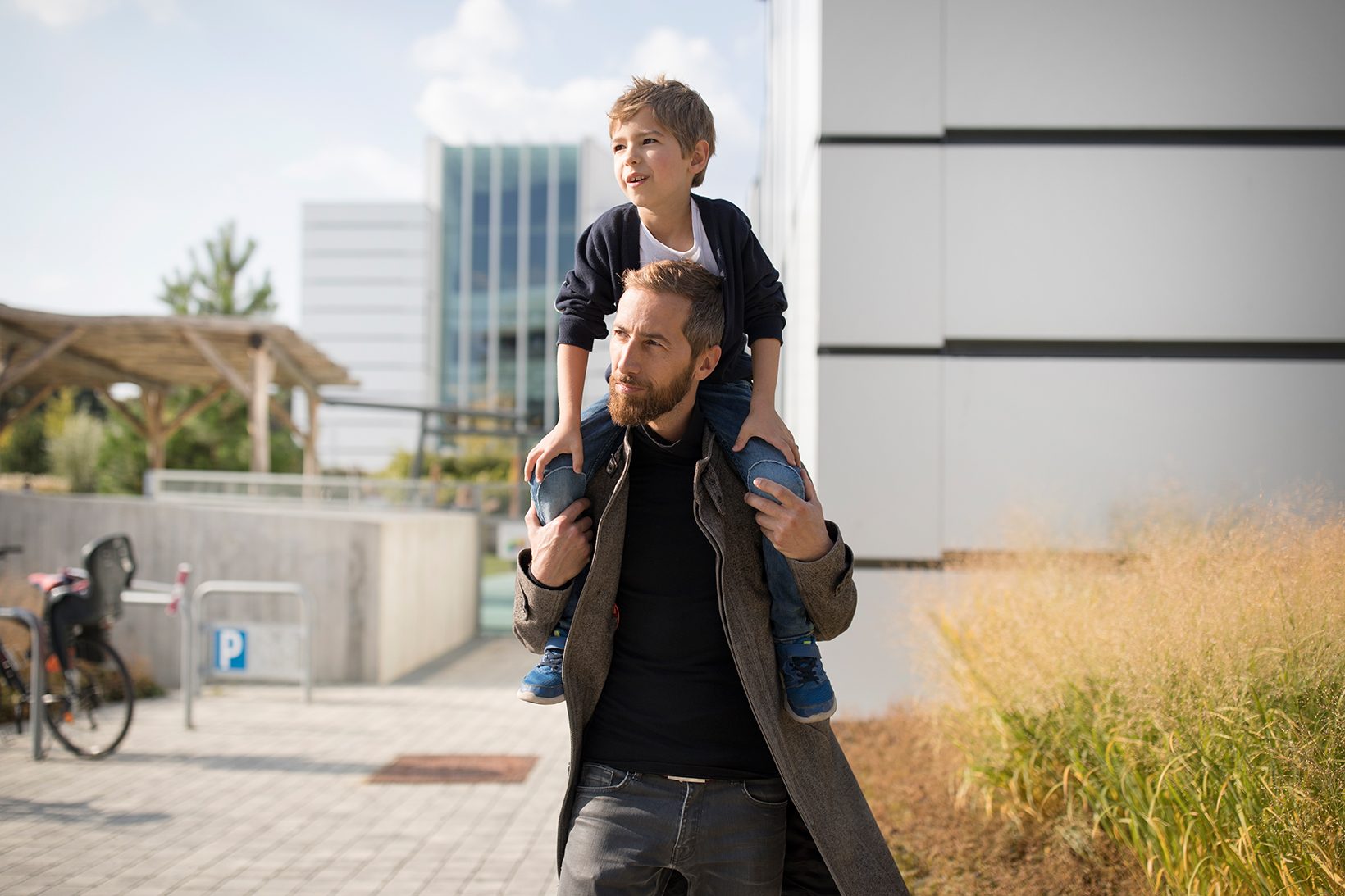
In-house Staff Mobility
Communication at WU improves when employees know and understand what their colleagues are doing in other WU units. To help them do this, we have established an in-house staff mobility program, giving WU faculty and staff the opportunity to switch to another WU unit to work and experience everyday working life for a short time.
Team of the Month
WU’s administrative staff provide important support to our teachers and researchers and play a crucial role in WU’s success. The Team of the Month award is intended to raise awareness for employees whose work or projects support the further development of our University. The following teams were selected in 2018:
- Fabian Liebel and Valentin Obergruber are program managers for the Master’s Program in Business Law. They run the program’s social media page and provide support to students and teachers for problems both large and small.
- Inka Assaf-Mückstein, Katharina Engl, Stephan Kardos, and Martin Schott organize events in WU’s Entrepreneurship Center, offering a platform for potential start-ups from all over Austria.
- Sabrina Breiteneder, Barbara Lindsberger, Livia Neutsch, Nicole Sommer, and Daniel Kufner compiled a set of guidelines for the Library for Law, intended to help new employees get off to a good start.
- Gregor Bauer, Stefan Baumgartner, Beat Binggeli, Stefan Jester, Alexandra Lachout, Anna Maria Schwendinger, and Reinhard Sefelin organized the Long Night of Research at WU and made sure everything ran smoothly.
- Stefanie Ilmer, Anna Jaschek-Langthaler, and Claudia Kopfschlägel are the core team of the Wellbeing@WU project. They make sure WU employees stay healthy at work.
- Stefan Benzinger, Irene Fellner, Katharina Hammer, Andreas Krasa, Karl Langenberger, Annette Lichtmannegger, Katharina Mifek, Katharina Müller-Weismann, Peter Mika, Reingard Schneider, Oskar Schöpf, and Martina Wolkensteiner ensured that the new General Data Protection Regulation was implemented at WU on time and without a hitch.
WU in Plain Language
A university the size of WU needs a large number of guidelines and regulations, and most of them deal with highly complex issues. One of WU’s 2018 goals was to revise and simplify its regulatory documents. A style-finding workshop was held to help develop an understandable and consistent WU language. The result of this process was the “WU versteht sich …” manual, which contains tips and tricks for writing easy-to-understand texts.
Reception for Retiring Employees
It’s important to WU to show our gratitude to retiring employees for their years of professional commitment. The first reception for all employees retiring in the current academic year took place in November. Rector Edeltraud Hanappi-Egger and Michael Lang, Vice-Rector for Human Resources, took a moment to say farewell to each departing employee personally. In recognition of their many years of service, the retired employees each received a personalized WU coin specially designed for the occasion.
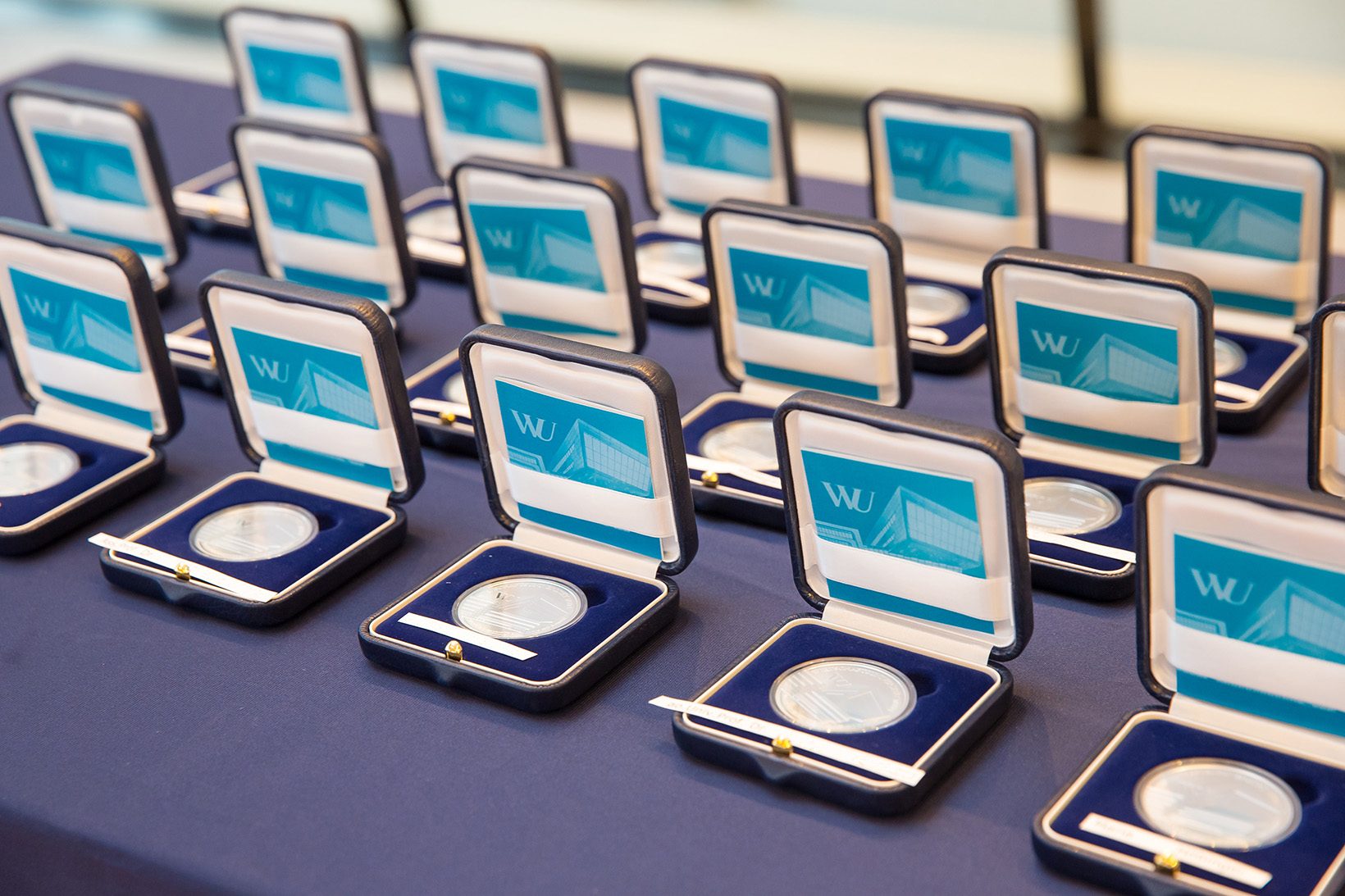
Personnel Development
New Personnel Development Plan
WU’s Personnel Development Plan was given a comprehensive overhaul in 2018 and the new version was published in June. The aim was to inform the WU community about key aspects of WU’s human resources strategy.
The first part describes WU’s personnel structure and includes job descriptions and career models for academic and administrative staff. The second part deals with WU’s main goals and values as an employer. These include internationality, diversity, and age management and their impact on personnel recruiting, continuing education, principles of leadership, performance evaluation, and employee placement.
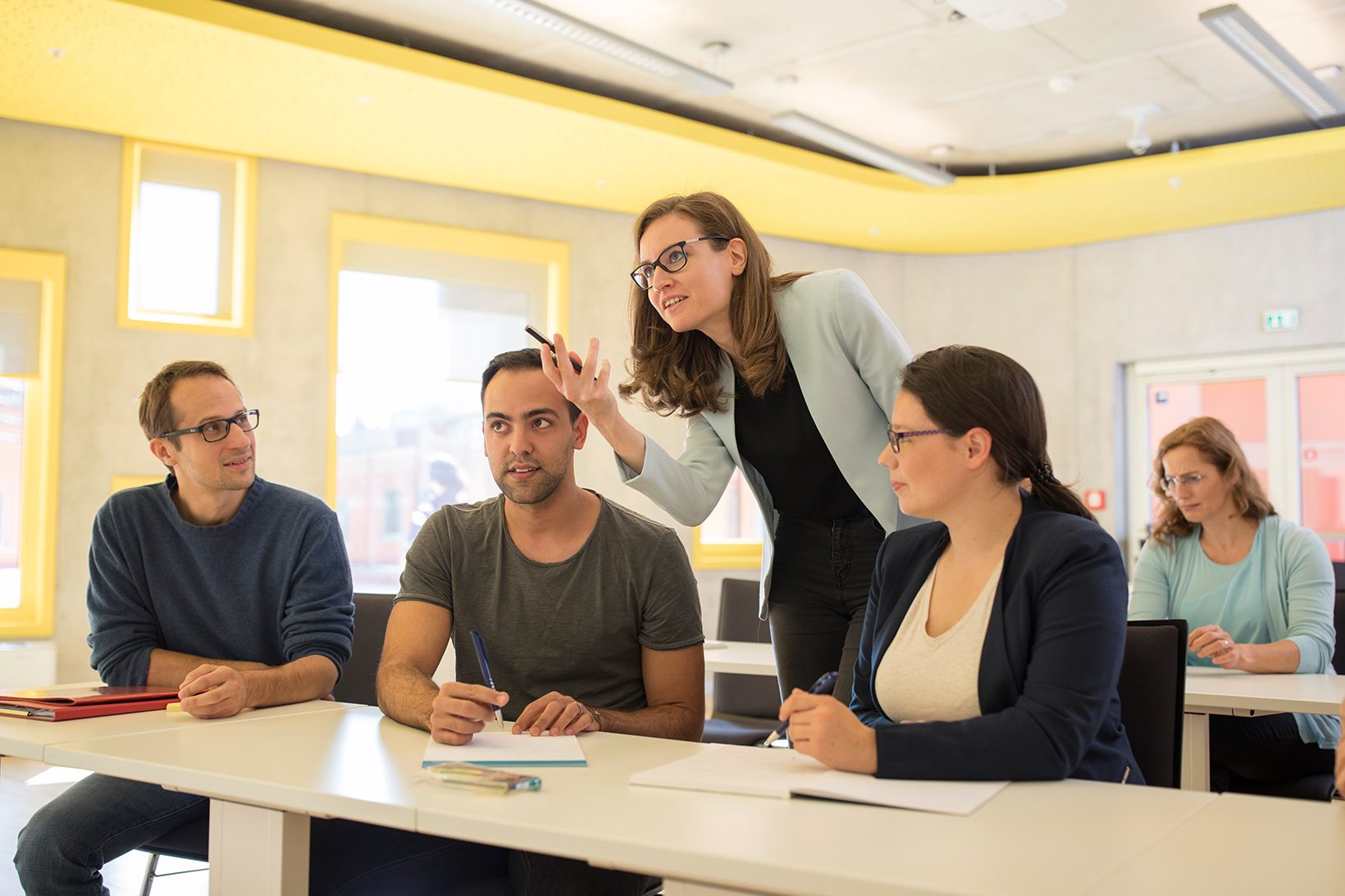
Faculty Management
A faculty management working group was established in 2018, consisting of members of the Rector’s Council and professors appointed by the Council of Department Chairs.
Peer Coaching
As part of their work at WU, research project heads often have to take on leadership responsibilities without formally holding a leadership position. A pilot project was launched in the fall of 2018, and since then, five researchers have participated, receiving support to help them develop and strengthen individual leadership skills.

